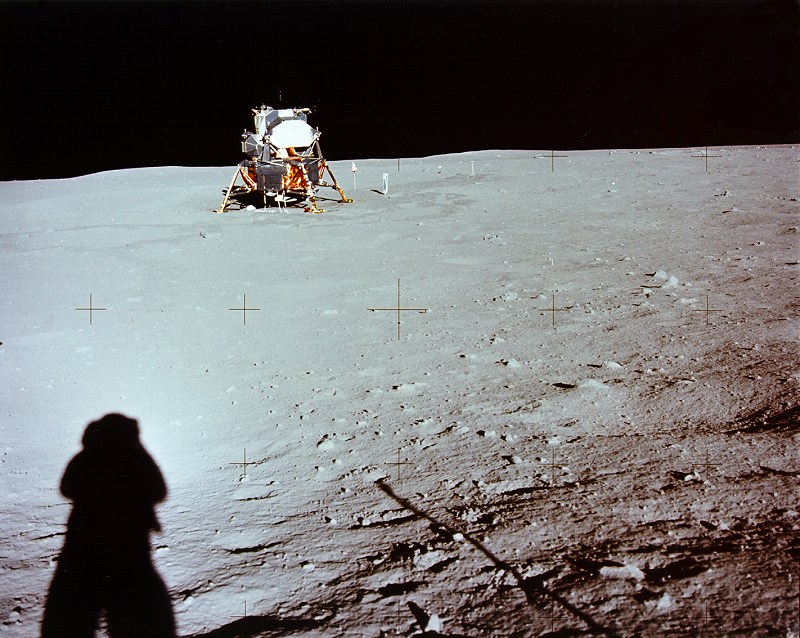I was 11 on the day Apollo 11 landed on the Moon. I’d grown up with Gemini and Apollo, and the real space stuff had slowly congealed in my consciousness, amid all the junior sf that already fascinated me. I’d been making construction kit models, and I had books, some too old for me, and a clever cardboard kit where you could move cut-outs of the bits of Apollo around a diorama of Earth and Moon, mapping out the mission sequence. I got up in the small hours to watch the Moon walk. I remember being baffled by the ghostly images, but I was astonished by the first clear view of them bouncing around—this really was another world.
I stayed glued to the later Apollo missions. I had a diplomatic illness that kept me off school during Apollo 13, so I followed every minute of it. The post-Apollo downturn coincided with my own adolescence, and the whole space thing came to seem a kind of baroque dream of my late childhood, to be put aside by me as well as by the world. But by then I was discovering other sorts of sf, such as the mind-expanding visions of Clarke and Stapledon. I came back to Apollo much later when I rediscovered the lost possibilities that might have followed—missions to Mars in the 1980s—and the sheer wonder of those first missions, revisited with an adult eye. I dramatised it all in my alternate-history novel Voyage (1996), which opens with Apollo 11. I was able to use the cuttings and so on I’d collected at age 11 as research—including that cardboard kit. So I think that book’s a homage to an adventure which shaped my own entire life.
Stephen Baxter is a British science fiction author of nearly fifty books and one hundred short stories, both fiction and non. A mathematician and engineer, Baxter is a Chartered Engineer and Fellow of the British Interplanetary Society.










